Behind the scenes of '˜farm to fork' in Sheffield
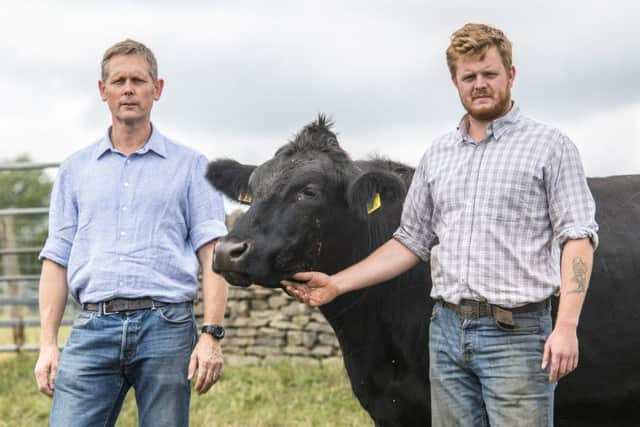

By tonight a couple of those lambs will have been sent a few miles down the road to Chesterfield for slaughter, brought back to be carefully butchered and could be on the dinner plates of Sheffield residents, either at home or in a restaurant like Ella’s Cafe. just down the hill on Ecclesall Road.
It’s been around three years since Whirlow Hall Farm began to make the most of its ‘farm to fork’ potential, supplying, selling or cooking its meat and vegetables to benefit the educational work of the farm’s trust.
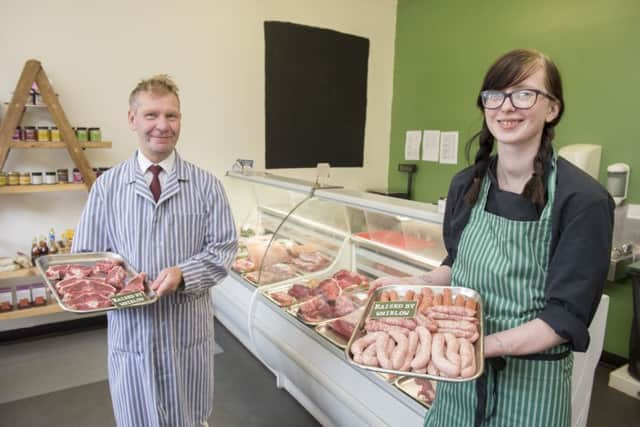

Advertisement
Hide AdAdvertisement
Hide AdThis arm of the trust’s work is in itself educational, too, and not just for the 10,000 children and young people a year who take part in programmes at the working farm.
“It’s about getting people to understand what food production is about”, said Ben Davies, chief executive of the trust.
“It’s a really important thing and if we don’t look after local food producers they will go out of business.
“We still get people coming in saying they can get it cheaper in Tesco. We explain we’re doing this in a different way here, and we are a very small production.”
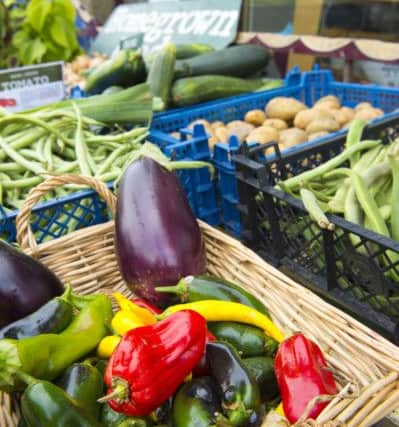

Advertisement
Hide AdAdvertisement
Hide AdWhile realistically many people won’t have the time, budget or inclination to shop with smaller producers, provenance is slowly becoming more important to more consumers who want to look beyond pre-prepared products handled by several faceless factories before they make it to a shelf.
Ben said the quality of care provided to animals while they are alive, and also the quality of the finished product, is much higher.
Ben added: “It comes back to people being really inquisitive about their food and asking questions, getting to the crunch of what their food is about.”
He references a food company which appeared on television recently, and produced four million fish fingers a week, with each stage completed in a different factories across the UK.
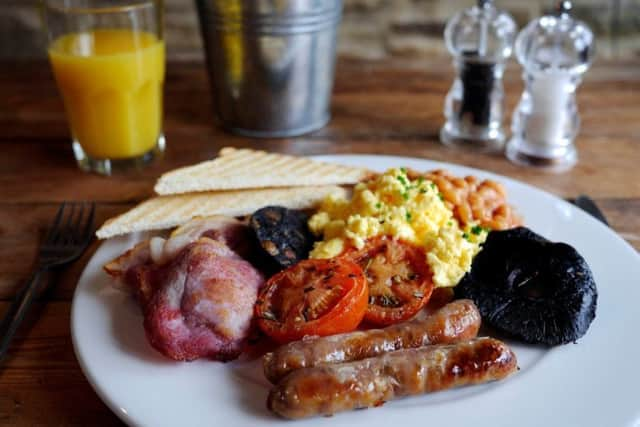

Advertisement
Hide AdAdvertisement
Hide Ad“For our animals, the furthest they go is Chesterfield, the furthest they go is five or six miles and that’s it”, he said.
While the farm’s produce is on a tiny scale compared to many even so-called small producers - with just 30 cows, 100 pigs and 100 ewes - they have to battle the same issues, from ever-changing weather to the cost of dog attacks.
Farmer Ash Malia came to the farm on work experience as a teenager and ‘never left’, going on to become farm manager. He is now responsible from everything from managing grazing patterns to judging the slim window when pigs are just the right weight to be sent off for slaughter.
The 28-year-old, originally from Firth Park, today recognises many of his flock as individuals by their markings or behaviour.
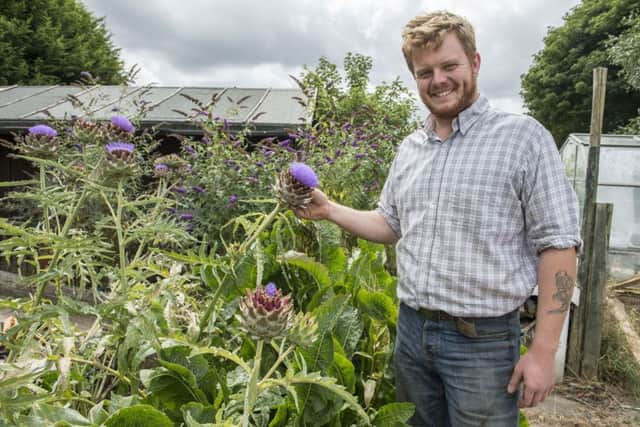

Advertisement
Hide AdAdvertisement
Hide AdHe said: “One of the reasons I have stayed at Whirlow, and you can do this job and not see another person, is when I was here on placement there were kids coming up who didn’t realise that meat came from farms.
“They grew up in the same area as me and they thought meat came from Tesco. We treat our animals the same right up until it gets to the abattoir, there’s no difference gets the same care and attention.”
When it comes to the vegetable fields, it’s not just the most common varieties on offer. Limes, pumpkins and even wine vines grow in the hills of S11, although the extreme heat killed off any dreams of strawberry picking this year, and there are more marrows than any human or animal could ever eat.
These too are all for sale in the little farm shop, and turned into dishes at the cafe by chef Stephen Wallis, but it is a struggle to sell them more widely.
Advertisement
Hide AdAdvertisement
Hide AdStephen - as well as finding ever inventive uses for marrows - hopes to expand the cafe offer from its popular breakfasts and catering weddings.
“We’d love to set up a deli counter here”, said Stephen, formerly a restaurant chef.
“What attracted me to the job was using all the produce that’s grown a few yards away.”
Across the courtyard, there are also hopes of extending the shop where butcher Ailidh Mcgonigle works. The former pastry chef has been trained up in the ‘dying art’ of butchery in the last two months as part of the farm to fork approach.
Advertisement
Hide AdAdvertisement
Hide Ad“We feel like we are creating the next generation of butchers”, said Ben.
Though sausages and bacon remain the most popular items on the counter, there are turkeys at Christmas, burgers in the summer, even offal and oxtail on sale for shoppers willing to work with what is available rather than what is on their shopping lists.
Ailidh said: “The first time I walked in the room to start learning butchery it was a bit of a shock (to see how big the animals were.)
“I’ve got used to it now though.”
Whirlow Hall has been selling eggs from its 400 hens since it first opened, but there are many hopes for future projects as its 40th anniversary nears in 2019.
And they will have one aim, to keep the farm’s work going for another 40 years.